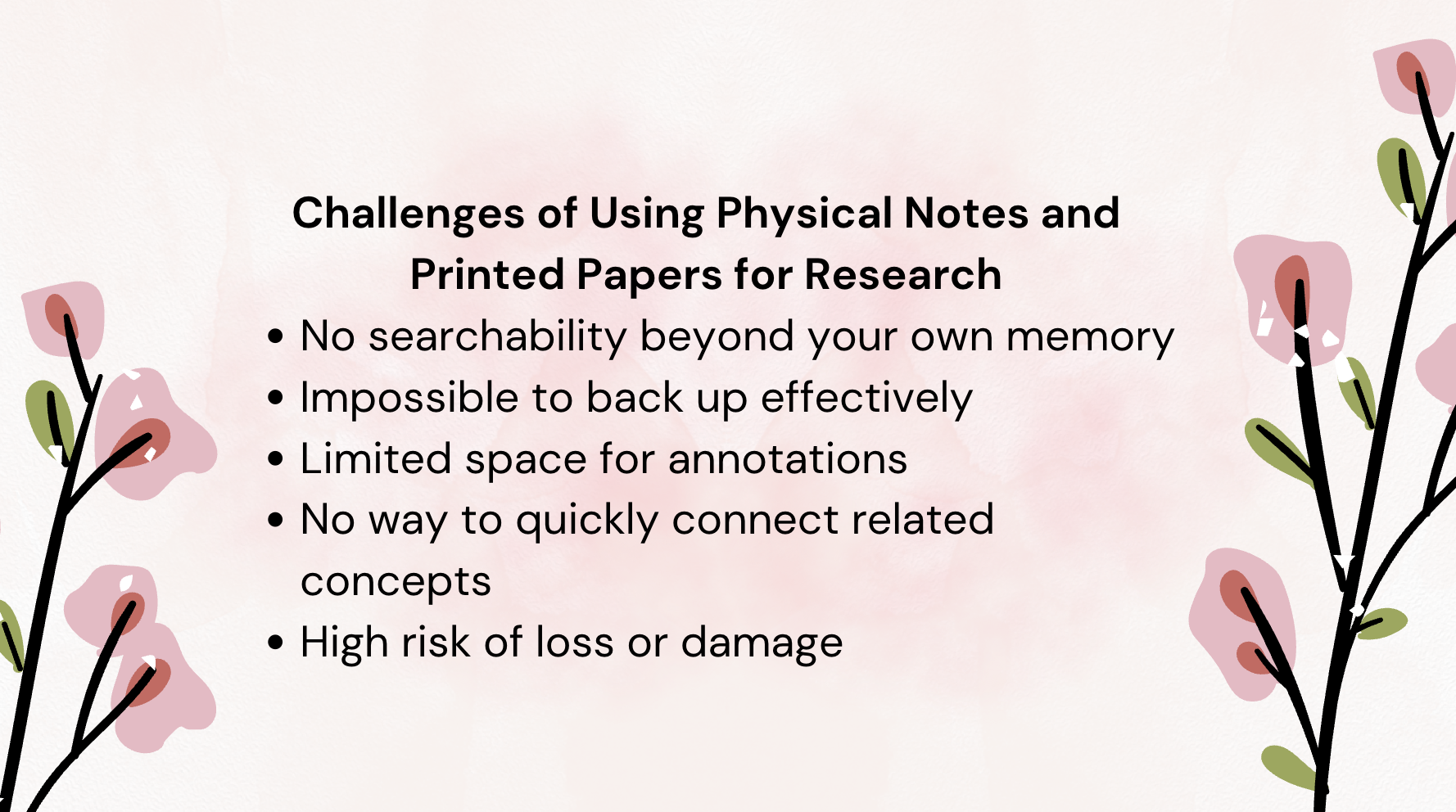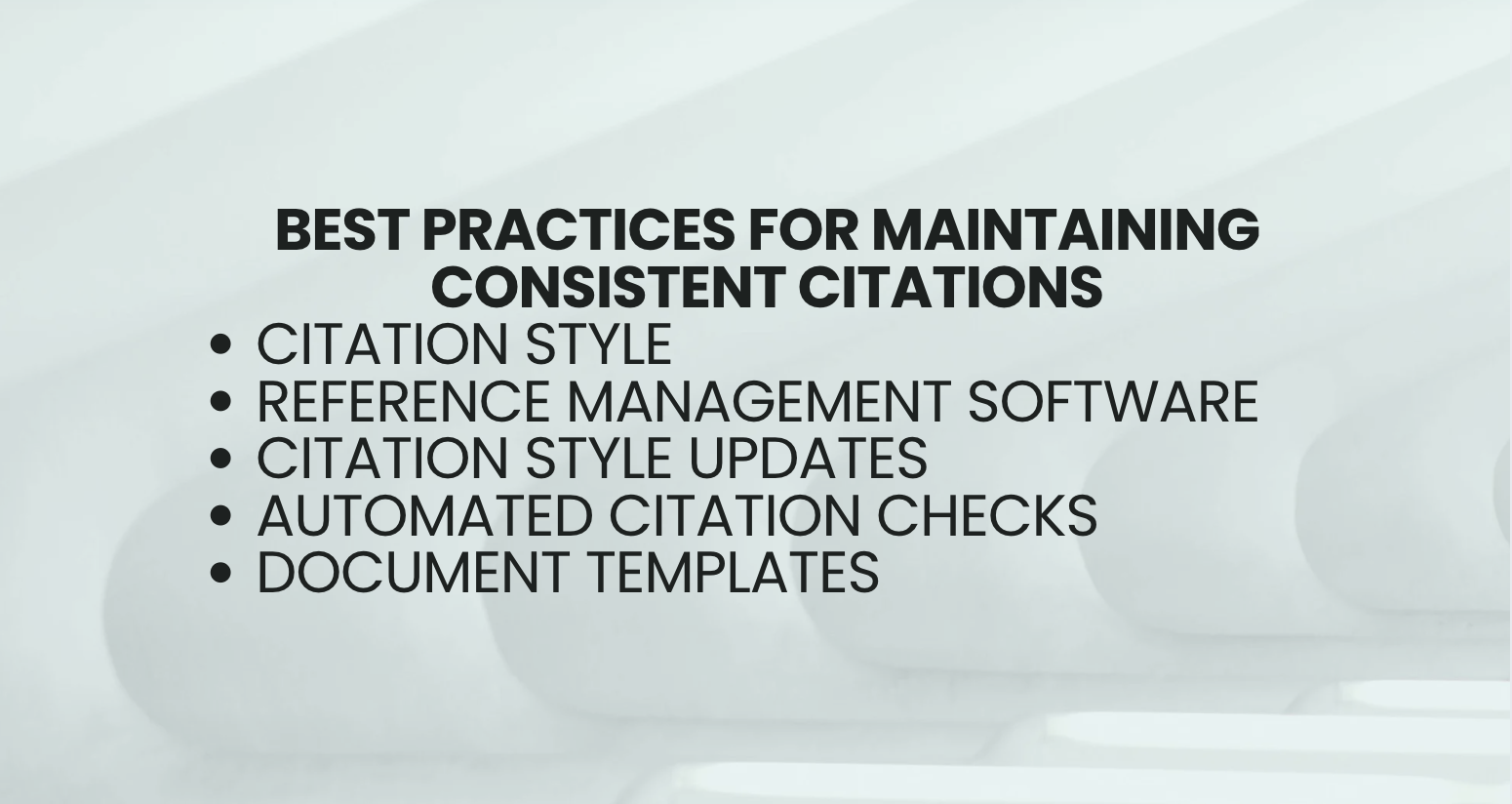
Understanding Reference Management Fundamentals
Managing references is something I struggled with for years. You've probably been there too – drowning in papers, losing track of important citations, and wasting hours formatting bibliographies. Reference management isn't just about keeping a list of sources; it's the backbone of quality research and knowledge work.
What is reference management and why it matters
Reference management is the process of organizing, storing, and retrieving the sources you use in your research. It sounds simple, but poor reference management can lead to hours of wasted time, lost information, and even academic integrity issues.
The hidden costs of poor reference management
The true cost of inefficient reference management goes beyond frustration:
Cost Factor | Impact | Potential Annual Time Loss |
|---|---|---|
Manual citation formatting | Tedious reformatting for different publications | 40-60 hours |
Lost references | Duplicated research to find sources again | 20-30 hours |
Disorganized notes | Difficulty connecting related concepts | 50-70 hours |
Citation errors | Potential credibility damage and corrections | Immeasurable |
Knowledge silos | Missed connections between related works | Reduced research quality |
Mistake #1: Relying on Manual Reference Tracking
I used to think I could manage all my references with folders, file naming, and spreadsheets. What a mistake that was!
The pitfalls of pen-and-paper reference systems
Physical notes and printed papers might feel tangible, but they create serious limitations for your thinking workspace:
No searchability beyond your own memory
Impossible to back up effectively
Limited space for annotations
No way to quickly connect related concepts
High risk of loss or damage
How automated reference management saves time
Modern research tools automate the tedious aspects of reference management, giving you more time for actual thinking and analysis. With tools designed for deep research, you can instantly capture, organize, and retrieve sources without manual effort.
How Ponder AI's one-click PDF upload transforms reference collection
Ponder AI takes reference management to the next level with one-click PDF upload that automatically extracts key information and transforms papers into interactive knowledge maps. This means you're not just storing references – you're creating a visual thinking workspace where connections become clear.
Mistake #2: Using Multiple Disconnected Reference Systems
Another common mistake is spreading your references across multiple systems – some in reference managers, others in note-taking apps, and still more in folders on your computer.
The chaos of scattered references across different platforms
When your references live in different places, you're constantly switching between tools and losing the thread of your research. This fragmentation makes it nearly impossible to see the big picture of your work.
"The biggest breakthrough in my doctoral research came when I finally consolidated all my references into one system. Suddenly, I could see connections between papers I'd read months apart that completely changed my theoretical framework." – Dr. Sarah Chen, Cognitive Science Researcher
Information silos and their impact on research quality
When references are isolated in separate systems, you miss opportunities to discover connections. Deep research depends on making unexpected connections between ideas – something that's nearly impossible when your knowledge is fragmented.
Ponder's integrated workspace approach
Ponder AI provides an all-in-one solution by combining reference management with reading, note-taking, and questioning in a single platform. This integrated approach eliminates the need to switch between multiple tools and prevents information silos from forming in the first place.
Mistake #3: Neglecting Proper Citation Formatting
We've all been there – scrambling to format citations before a submission deadline, only to find inconsistencies that need urgent fixing.
Common citation style mistakes and their consequences
Even small citation errors can damage your credibility and cause rejection from publications. Common mistakes include:
Inconsistent formatting between in-text citations and bibliography
Missing information for certain reference types
Incorrect ordering of author names or publication details
Using outdated citation style guidelines
Mixing citation styles within one document
Best practices for maintaining citation consistency
To maintain consistent citations:
Choose a single citation style appropriate for your field
Use reference management software to automatically format citations
Update your citation style files when new editions are released
Double-check automated citations for unusual source types
Consider creating templates for your most common document types
How Ponder AI ensures accurate citation management
Ponder AI is trained on over 200 million academic papers, giving it deep expertise in citation practices across disciplines. The platform automatically extracts citation metadata from uploaded PDFs and maintains proper formatting throughout your research process.
Mistake #4: Failing to Extract Key Information from References
Simply collecting references isn't enough – you need to extract and understand the key insights from each source.
The problem with surface-level reading of sources
Many researchers fall into the trap of skimming abstracts and conclusions without diving deeper. This surface-level approach misses critical details, methodological nuances, and potential connections to your own work.
Creating effective research summaries
Good research summaries should capture:
Key claims and findings
Methodological approach
Limitations acknowledged by authors
Connections to other works
Potential applications to your research
Ponder's interactive knowledge maps for deeper comprehension
Ponder transforms papers into structured knowledge maps that make it 10x faster to grasp key ideas. These interactive maps allow you to see the structure of arguments, quickly identify methodology sections, and connect related concepts across multiple documents, which is particularly powerful when you use AI for mapping legal arguments to untangle complex case law and doctrinal debates.
Beyond understanding static arguments, modern research also benefits from visualizing case timelines with AI to track how a dispute or legal issue evolves across multiple decisions and documents. This kind of temporal visualization helps you see when key precedents emerged, how interpretations shifted over time, and where critical gaps in your evidence or citations might still exist.
Mistake #5: Poor Organization of Reference Relationships
References don't exist in isolation – they form a web of connected ideas that shape your understanding.
Why isolated references limit research insights
When you treat each reference as a standalone item, you miss the rich network of relationships between sources. True insight comes from seeing how ideas connect, conflict, and build upon each other.
Building a coherent research narrative
Your references should tell a story about the evolution of ideas in your field. By organizing references to show how knowledge has developed over time, you create a narrative that contextualizes your own contribution.
Ponder's spatial thinking approach to connecting references
Ponder's digital canvas enables spatial thinking, allowing you to organize knowledge visually and see connections that would be invisible in linear formats. The AI-assisted mind mapping features help identify relationships between documents automatically, while giving you the flexibility to customize your knowledge organization, making it an ideal AI tool for patent research mapping when you need to compare prior art, claims, and citations across large patent families.
Mistake #6: Inefficient Reference Retrieval Systems
The ability to quickly find and revisit references is crucial for productive research.
The time cost of searching for previously used references
I once spent three hours searching for a specific paper I knew I'd read because I couldn't remember the author's name or the exact title. This type of time waste is common with poor reference retrieval systems.
Implementing effective tagging and categorization
Create a consistent tagging system that works for your thinking style:
Use both broad categories and specific tags
Consider tagging by methodology, theoretical approach, and findings
Include tags for potential applications of the research
Develop project-specific tags for current work
Regularly review and clean up your tagging system
Ponder's AI-powered search capabilities
Ponder's AI understands the context of your search queries, not just keywords. This means you can ask complex questions and find relevant sections across your entire reference library instantly.
Mistake #7: Overlooking Collaborative Reference Management
Research rarely happens in isolation, yet many researchers fail to implement collaborative reference management.
The challenges of team-based research and reference sharing
Team research introduces new challenges:
Ensuring everyone has access to the same references
Maintaining consistent citation formatting
Avoiding duplicate effort
Sharing insights without overwhelming collaborators
Tracking who added which references and why
Avoiding duplicate work in group research settings
Without proper collaboration tools, team members often read and annotate the same papers without benefiting from each other's insights. This wastes valuable research time and misses opportunities for deeper analysis.
How Ponder supports collaborative knowledge building
Ponder enables teams to build knowledge together by sharing interactive knowledge maps, collaboratively annotating documents, and collectively organizing information on a shared digital canvas.
The Future of Reference Management: Beyond Traditional Methods
The future of reference management isn't just about organizing sources – it's about integrating reference management directly into your thinking and writing process. This integration eliminates the artificial boundary between consuming research and creating it.
Ponder's approach represents this next evolution in research tools by providing a progressive learning flow from framework building to deep exploration. Instead of treating reference management as a separate task, Ponder integrates it into a complete research workspace where knowledge organization happens naturally.
Conclusion: Transforming Your Reference Management Approach
Avoiding these seven reference management mistakes will transform your research effectiveness and save you countless hours of wasted effort. By implementing proper reference management practices and tools like Ponder AI, you'll not only organize your sources more effectively but actually enhance your thinking process.
The right reading tool doesn't just store your references – it extends your cognitive abilities, helps you see connections you might miss, and accelerates your knowledge work. When reference management moves from being a chore to becoming an integrated part of your thinking workspace, your entire research process becomes more productive and insightful.


